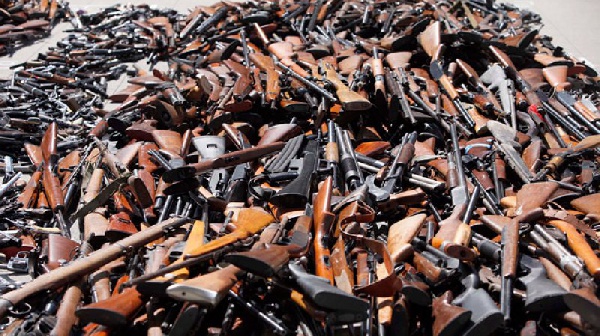A research report by the Conflict Armament Research (CAR), has indicated that African governments appear to be the main vector in the supply of Iranian ammunition (and weapons) to illicit market in Africa.
The report notes that this may be as a result of loss, theft or deliberate policies of arming civilians and insurgent forces.
It says the diversion of weapons and ammunition from government forces to civilian markets is a persistent and well-documented problem in Africa and the findings of this study add yet another layer of confirmation.
The report is the result of six years of collaborative investigations and documents the Distribution of Iranian Ammunitions in Africa made available to the Ghana News Agency on Monday.
It is the first comprehensive study of Iran’s weapon “footprint” in Africa and its findings are significant, not least because until very recently, most international observers would have described Iran’s role in this work as negligible to non-existent.
It focuses primarily on small-calibre ammunition, which is an often-neglected-but operationally critical component of the African arms trade.
It also provides clear evidence of Iran’s role in supplying a range of other ordnance to the continent, including mines explosives, light weapons and larger conventional arms and ammunitions.
The report presents findings from extensive field-based investigations conducted in nine African countries between 2006 and 2012.
According to the report these are states that have experienced protracted arms conflict, such as Darfur region of Sudan, the Democratic Republic of the Congo and South Sudan.
It says others, such as Cote d’Ivoire and Guinea recently experienced destabilizing political turbulence or civil war.
It notes that states such as Kenya, Niger and Uganda have either experienced prolonged inter-communal violence or find themselves sandwiched between conflict regions where weapons proliferate unchecked.
The report says in all cases, the report documents Iranian ammunition either in the hands of a state force or in service with non-state factions, including rebel forces, foreign backed militias, and Islamists extremists groups and warring civilians communities.
The findings are significant from the perspective of regional security and provide important indicators that the African arm market is changing in composition.
The United Nations, in a series of resolutions, has similarly tried to block arms transfers into Ivory Coast, Congo and Sudan, all places where researchers found Iranian ammunition.
The report says ammunition from other sources, including China, Russia, Hungary, the Czech Republic and other former Soviet bloc nations remain in circulation in Africa, along with production by African countries.
CAR identifies and tracks conventional weapons in contemporary armed conflicts.
Established in 2011, it was created in response to the growing need for informed, on-the-ground reporting on weapons proliferation in modern wars and insurgencies.
General News of Tuesday, 15 January 2013
Source: GNA
African governments: Vectors in the supply of Iranian ammunition to illicit market – Report

















